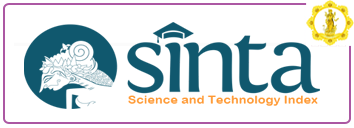Bahasa Bali Dalam Tradisi Tamblang Waluh Desa Adat Bungaya, Kecamatan Bebandem, Kabupaten Karangasem: Kajian Fungsi dan Nilai
DOI:
https://doi.org/10.25078/ds.v4i1.2558Keywords:
Balinese language, value, tamblang waluhAbstract
The Tamblang Waluh tradition is a rare form of culture and is rarely found in other areas. Therefore, it is necessary to carry out an in-depth study so that the sustainability of the traditions, functions, and values contained therein are known. The research method used is qualitative research method so the type of research used in this research is a type of qualitative research using a naturalistic inquiry approach, field study or phenomenology. researchers used observation, interviews, documents, and literature to collect data, analyzed with triangulation techniques and presented with qualitative descriptive. Based on the research that has been done by researchers, it is concluded that the aspects contained in the Tamblang Waluh tradition, including settings, participants, end, act of sequence, keys, instrumentalities, norms, and genres are still maintained today. The sustainability of these aspects directly affects the sustainability of the function of the Balinese language within it, which functions as a sign, as a form of communication of intimacy and as a cultural identity. The Tamblang Waluh tradition is a cultural asset for the people of the Bungaya Traditional Village, as well as a medium for inheriting life values, including religious values, logical values, ethical values, and aesthetic values.









